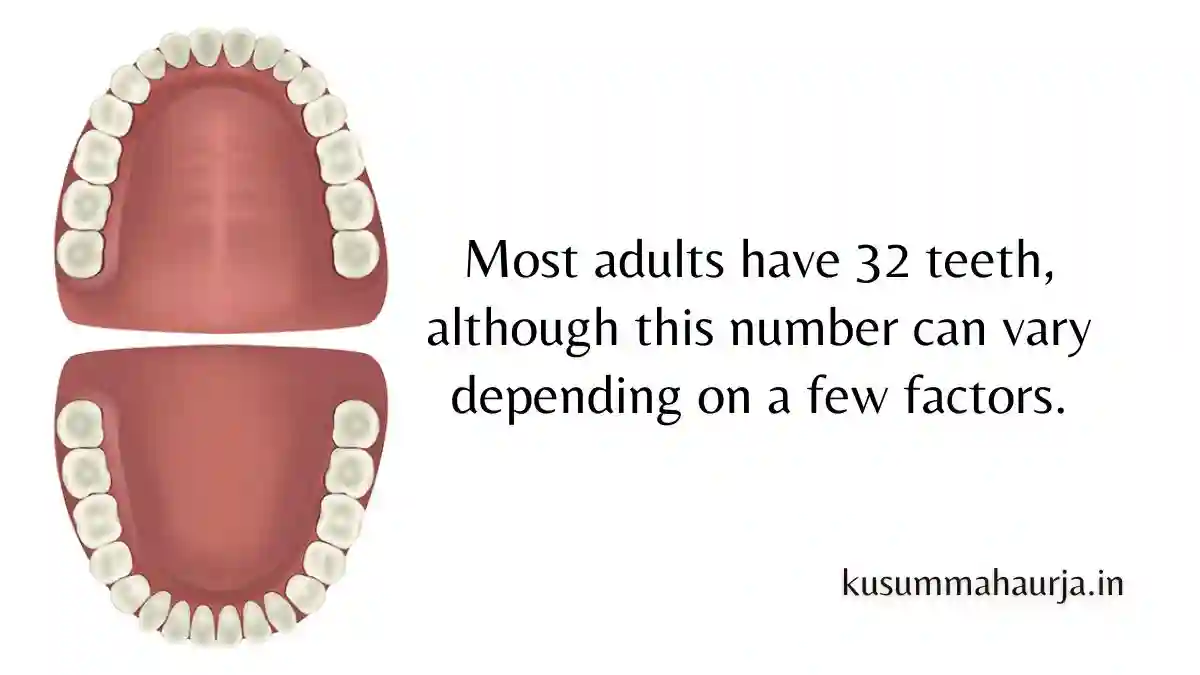When it comes to dental health, understanding the number of teeth an adult has is essential. Teeth play a crucial role in our overall well-being, allowing us to chew food properly and speak clearly. In this article, we will delve into the topic of how many teeth adults have, exploring the different types of teeth and their functions.
The Anatomy of Adult Teeth
An adult typically has 32 teeth, which are divided into four main categories: incisors, canines, premolars, and molars. Each type of tooth serves a specific purpose in the chewing process and contributes to maintaining a healthy mouth.
- Typical number: 32 teeth (16 upper teeth and 16 lower teeth)
- Types of teeth:
- 8 incisors (front teeth for biting)
- 4 canines (pointed teeth for tearing)
- 8 premolars (grinding teeth between canines and molars)
- 12 molars (back teeth for grinding)
- 4 wisdom teeth (third molars, often removed due to lack of space)
Here are some reasons why the number of teeth can vary:
- Missing teeth: Some people are born with missing teeth (hypodontia), or they may lose teeth due to injury, decay, or gum disease.
- Extra teeth: Some people have extra teeth (hyperdontia), which can cause crowding or other problems.
- Wisdom teeth: Not everyone has all four wisdom teeth, and many people have them removed because they can cause problems if they don’t have enough space to come in properly.
Incisors
Adults have a total of 8 incisors, with 4 located in the upper jaw and 4 in the lower jaw. Incisors are the front teeth and are responsible for biting into food. They have a sharp, thin edge that helps cut through food easily.
Canines
Adults have 4 canines, also known as cuspids. These teeth are positioned on either side of the incisors and have a pointed shape. Canines are essential for tearing and grasping food, allowing for better chewing and digestion.
Premolars
Adults have 8 premolars, also called bicuspids. These teeth are located behind the canines and have a flat surface with ridges. Premolars aid in grinding and chewing food, helping to break it down into smaller, more manageable pieces.
Molars
The molars are the largest teeth in the mouth and are located at the back of the mouth. Adults have a total of 12 molars, with 6 on the upper jaw and 6 on the lower jaw. Molars have a broad surface with multiple cusps, which are ideal for crushing and grinding food.
The Importance of Wisdom Teeth
In addition to the 32 teeth mentioned above, some adults may also have one or more pairs of wisdom teeth. Wisdom teeth, also known as third molars, typically erupt between the ages of 17 and 25. However, not everyone develops wisdom teeth, and some may have them removed due to various reasons, such as impaction or overcrowding.
Wisdom teeth can cause problems if there is not enough space in the mouth for them to fully emerge. They may become impacted, meaning they are unable to break through the gum line. Impacted wisdom teeth can lead to pain, infection, and damage to adjacent teeth, necessitating their removal.
Maintaining Healthy Teeth
Regardless of the number of teeth an adult has, proper dental care is crucial for maintaining oral health. Here are some essential tips for keeping your teeth in excellent condition:
- Brush your teeth at least twice a day with a fluoride toothpaste.
- Floss daily to remove plaque and food particles from between your teeth.
- Visit your dentist regularly for check-ups and professional cleanings.
- Limit your consumption of sugary foods and drinks, as they can contribute to tooth decay.
- Avoid tobacco products, as they can stain your teeth and increase the risk of oral cancer.
- Wear a mouthguard during sports activities to protect your teeth from injury.
By following these simple guidelines, you can maintain a healthy smile and ensure the longevity of your teeth.
In Summary
Adults have a total of 32 teeth, including incisors, canines, premolars, and molars. These teeth serve various functions in the chewing process, allowing us to break down food and aid in digestion. Wisdom teeth, if present, can bring the total number of teeth to 36 or more. However, the presence of wisdom teeth can also lead to dental issues, and their removal may be necessary.
To maintain optimal dental health, it is essential to practice good oral hygiene habits, such as regular brushing, flossing, and dental check-ups. By taking care of your teeth, you can enjoy a healthy smile and prevent potential dental problems in the future.

